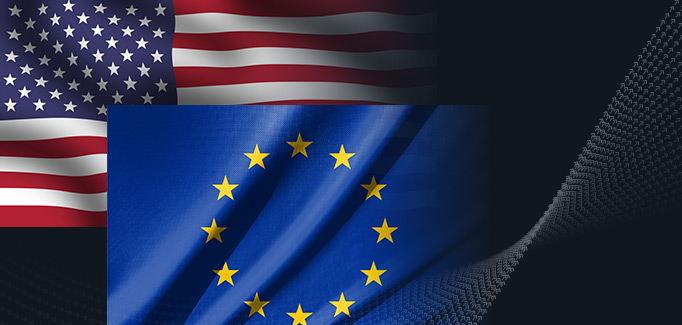Beneficial Ownership and KYC Registries: Disparity between the U.S., Europe and APAC
August 30th, 2019

Research and content contributions to this article were provided by NICE Actimize’s Matthew Field and Trevor Barritt.
Beneficial Ownership continues to be a hot topic of discussion across the globe. After the wave of new and clarified regulatory requirements in 2018, the fact that heated debate on this topic continues should come as no surprise. Whether it is the Fifth EU Directive (AMLD5), FinCEN’s Beneficial Ownership Final Rule, or FINTRAC’s Beneficial Ownership Amendments, all these guidelines seek to provide more clarity behind the reality and nature of the persons behind legal entities or shell companies.
In the U.S., financial services organizations are required to collect Beneficial ownership information from their customers; however, beyond that, requirements are not strong. This is partly due to the inability to validate such data, especially in the United States where a central repository of such information is not readily accessible or may be completely non-existent.
In March of this year in the U.S., a group of trade associations including CBA, BAFT, ABA, and others directed a letter to Maxine Waters, Chairwoman, and Patrick McHenry, Ranking Member, of the Committee on Financial Services. The letter showed their support of Congressional efforts to fight financial crime and their focus on recognizing identities behind the shell companies which are often used to hide those individuals’ true personas. They also stated that this alone though is not enough. For financial institutions and law enforcement to effectively fight money laundering and terrorist financing, a federal registry of the beneficial owners of legal business entities needs to be established and legal entities and their beneficial owners need to register.
In Europe, the situation is a little different. Member states of the European Union (EU) are implementing centralized registries and they must ensure that information in those registers are accurate and up-to-date. The EU Commission has been tasked to ensure the interconnection of the many registers at the EU level by 2021.
Across Asia-Pacific, the topic of beneficial owners has had increased legal and regulatory focus and is becoming a complex compliance burden for financial services participants. Driven by global initiatives from FATF (the 2014 guidance paper, Transparency and Beneficial Ownership) and other global events (such as the Panama Papers in which Hong Kong was seen in a poor light), the majority of the region’s regulators (over 40) have implemented enhanced laws intending to enable a more transparent company information disclosure. In some instances, this has meant the creation or opening of national Beneficial Ownership registers.
In both Singapore and Hong Kong, financial services organizations are required to include Beneficial Ownership information as a KYC/CDD focus, and they’re advised to take reasonable measures to verify identities. However, as promising as this is, there still is no real guidance as to what “reasonable measures” entails.
Some other countries have already provided Beneficial Ownership transparency. For example, in Malaysia, companies are required to maintain basic ownership information and it must be registered with either the CCM or the LFSA (whose registers are available to the public). Unfortunately, though, this did not appear to have helped in the 1MDB money-laundering event.
In the Philippines, the Central Bank has committed to more supervisory enforcement action following AML/CTF supervisory concerns related to the customer risk rating and understanding of the individual. Japan has set out several significant changes (legal and in some ways cultural) to better Beneficial Ownership transparency and to ensure law enforcement agencies have access to this information.
Crossing International Borders
While these actions are helpful, how are we supposed to address transactions that cross international borders when an agreement for the sharing of information is not available, and where privacy concerns conflict with this initiative?
In our world of multinational corporations, there are many company structures that can vary by region, with ownership often spread across several different jurisdictions with varying requirements and disclosure of ownership. The many government-owned or controlled companies in China is an example of where regional challenges exist for financial institutions’ assessments.
In May, Ken Blanco, US FinCEN Director, made a rather chilling speech to the Senate citing real-life cases that could have been avoided or identified much quicker if there had been tighter controls on shell companies. Law enforcement spends a great deal of time on grand jury subpoenas, surveillance operations, witness interviews, search warrants, and other measures, but this is time that could be better spent on the investigations themselves.
In June of this year, four bi-partisan U.S. Senators introduced draft legislation called the ILLICIT CASH Act. It’s a proposal “to establish Beneficial Ownership reporting requirements to improve transparency concerning corporate structures and insight into the flow of illicit funds through such structures and discourage the use of shell corporations as a tool to disguise illicit funds.” They are currently seeking input regarding their draft legislation concepts.
Also, in June of this year, testimony was given before the Senate Banking Committee on “Outside Perspectives on the Collection of Beneficial Ownership Information.” Greg Baer, CEO, Bank Policy Institute (BPI) spoke on how the United States does more than most other countries to stop proceeds of crime; but, he explained, it’s also one of the worst countries when it comes to letting criminals hide their proceeds of crime in corporate structures. He continues to say we have become a “safe haven for those who wish to hide the proceeds or instruments of illegal activity.” Other countries are leading the pack while the Financial Action Task Force (FATF) continues to criticize the United States for this deficiency in the system.
Therein lies a bit of irony we would have to point out. As noted above, FinCEN’s Final Rule requires financial services organizations to collect Beneficial Ownership information during onboarding and other significant events. This should be the second line of defense. Shouldn’t the first line of defense be to collect it when the corporation is formed? Delaware anyone?
The onus of this work is currently placed on the financial organizations after the fact, rather than on the governing bodies that are initially approving the formation of the corporation. We would believe cost may be a factor in this approach, but this process comes with a cost. And so far, that burden has been placed on the financial services organizations. In fact, the Treasury Department estimates the CDD Rule will cost banks and their customers between $700 million and $1.5 billion over the next decade. However, other analysts have estimated these numbers to be much higher as this estimate is not inclusive of IT costs that cover implementation changes to new/existing solutions. One financial services organization cited in FinCEN’s Regulatory Impact Assessment (RIA) indicated that their IT costs could top $20 million to implement the required modifications.
The question has been asked many times: “Will the U.S. Congress ever enact legislation to make this information required during the formation of a corporation and will that information be centralized and maintained?”. The answer to that question depends upon which entity provides the response. Some tend to think the regulatory bodies will never implement such a solution, while others continue to push for change. A draft of the ILLICIT CASH Act continues to circulate, drawing bipartisan support which could potentially result in the creation of a national KYC registry. However, the U.S. has historically preferred a private market solution and has shown reluctance to share Beneficial Ownership information outside its borders.
One thing is for certain, the laws around Beneficial Ownership are here to stay, and we are betting that most probably will continue to become even more stringent. To effectively maintain business as usual, FSOs will need to ensure they have a solution and processes in place that not only capture Beneficial Ownership, but also maintain it as relationships evolve.
“Capturing and maintaining” is only the first step; understanding precisely who the individuals are is the next, and probably most important, step. Organizations need to ensure they are not doing business with sanctioned individuals, as well as knowing about any negative news on the individual(s) that could adversely affect the organization.
Setting the foundation now for sound process and planning for the future will ultimately save time and aggravation.




